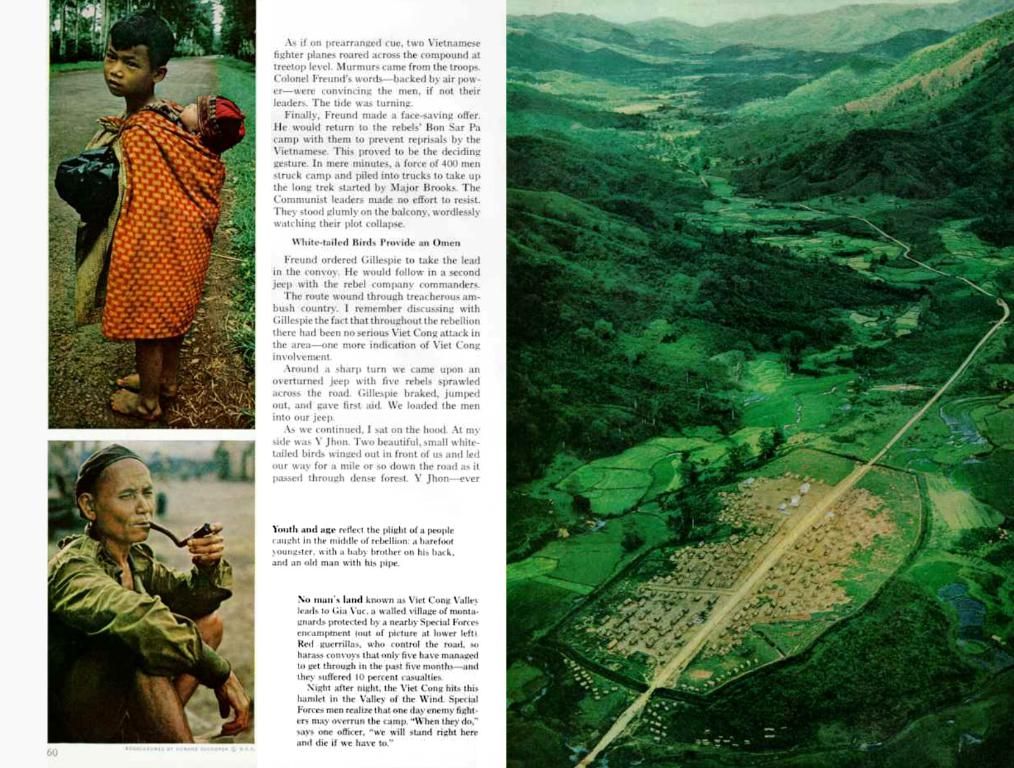Blood Donation Leaders: "Every donation session resembles a festive gathering, a bonding moment for community members"
3-Minute Read: Bloody Brilliant Badajoz!
The residents of Villafranca de los Barros, Badajoz certainly know how to show their altruistic side. They have a unique tradition: blood donation events. This small town, home to over 12,000 people, donates a whopping 1,300 blood bags a year. Lola Durán, a local resident and president of the Badajoz Blood Donors Brotherhood, describes these donation events as community gatherings.
On World Blood Donor Day, Lola shared her thoughts. "It's like a party! Folks come with their families and friends, chat, and catch up," she explains. "It's almost like a meeting point for many neighbors." This vibrant community spirit is evident in their dedication to saving lives through blood donations.
Badajoz leads the province in blood donations, with only Almendralejo, which donates 2,116 bags, taking the top spot. Extremadura has claimed the title of the region in Spain with the highest blood donation rate per thousand inhabitants for the past ten years, followed closely by Castile and León, Asturias, and Castile-La Mancha.
The tradition of blood donation isn't exclusive to Badajoz. Many towns in Extremadura, particularly rural ones, have a strong culture of donation. However, as more people migrate to cities, this trend is starting to change. The Blood Donors Brotherhood is working to adapt to urban settings by using new technologies and reaching out to colleges and residences.
Once the blood is collected, it's delivered to the Extremadura Blood Bank for testing and fractioning. The bank ensures the safety of the blood by testing it for diseases like hepatitis and the Nile virus. Then, it fractionates the blood into red blood cells, platelets, and plasma to meet the transfusion needs of patients. In recent years, the bank has also started campaigns for donating umbilical cord blood, bone marrow, and breast milk.
Blood has a limited shelf life, with red blood cells lasting 42 days, plasma up to three years, and platelets five days. To make the most of each donation, volunteers are encouraged to donate through apheresis, a process that allows specific blood components to be obtained.
The spirit of giving isn't limited to Badajoz. In Casas de Ves, a small town with about 500 inhabitants, almost everyone who can donate blood does so. This town, while small, boasts the highest donation rate of any town in its province. Despite the aging donor profile in both towns and cities, young people are encouraged to donate, breaking down the barrier of fear.
In La Roda, a larger town with over 15,000 inhabitants, residents are encouraged to donate consistently. Despite the challenging process at first, many find the act of donating fulfilling, knowing they're helping someone in need.
Throughout Spain, over one million people donated blood and blood components in 2023. Anyone aged between 18 and 65 years old, with a minimum weight of 50 kg, can donate blood. A donor may donate every eight weeks, up to four times a year for men and three times for women, as long as they meet the eligibility criteria.
Up to 20 donations may be needed for a surgical intervention, and two to four for a complicated birth. For a liver transplant, between 30 and 200 donations are required, and up to 250 donations may be needed for leukemia treatment. Donating blood truly makes a difference—it's not just a prick, it's a life-saver.
The average number of blood bags donated per person in Casas de Ves is remarkably high, indicating a strong commitment to health-and-wellness and an appreciation for the science behind blood donations.
Badajoz's dedication to blood donation isn't only about the quantity, but also about the quality, as the Extremadura Blood Bank ensures that all donated blood is thoroughly tested for diseases before it is fractioned and used for transfusions.




